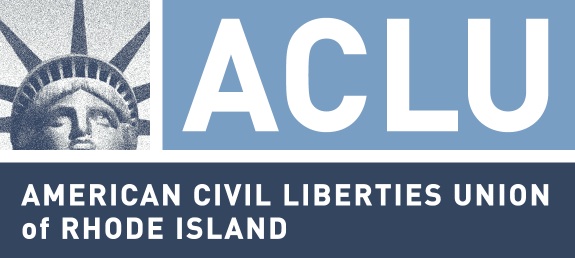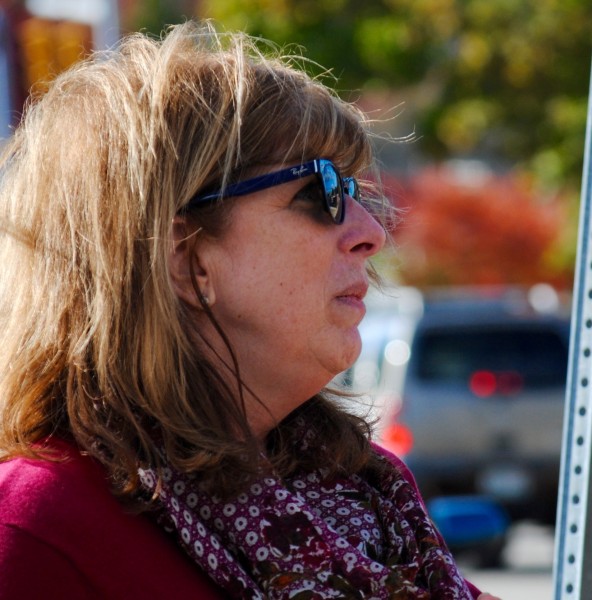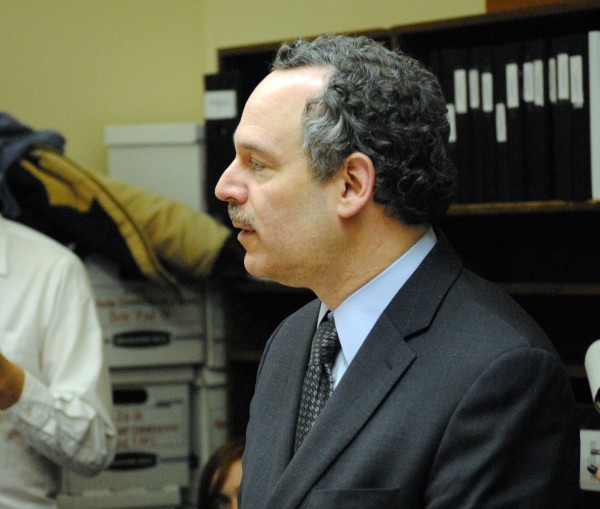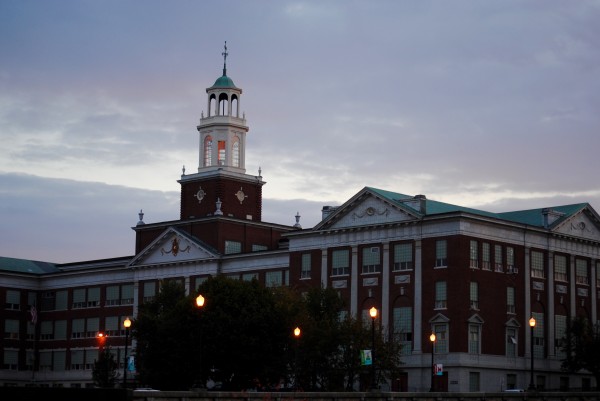 The American Civil Liberties Union of Rhode Island has called on all school districts that currently have school resource officers (SROs) to re-evaluate their use in the schools and to revise the agreements they have with police departments that set out their job responsibilities. The call was prompted by incidents at Pawtucket’s Tolman High School last week, which reinforced many of the serious concerns the ACLU has long held regarding the routine presence of police officers in schools.
The American Civil Liberties Union of Rhode Island has called on all school districts that currently have school resource officers (SROs) to re-evaluate their use in the schools and to revise the agreements they have with police departments that set out their job responsibilities. The call was prompted by incidents at Pawtucket’s Tolman High School last week, which reinforced many of the serious concerns the ACLU has long held regarding the routine presence of police officers in schools.

In a letter sent to Pawtucket school district superintendent Patti DiCenso on Tuesday and shared with school superintendents across the state, ACLU of RI Executive Director Steven Brown noted that school districts cede an “enormous amount of control” when they sign Memorandums of Understanding (MOU) with police departments, and that this “unnecessarily set the stage for last week’s series of ill-fated events” in which an SRO’s attempt to handle a single student’s behavioral issue led to the injury and arrest of the student and his brother, the arrest of eight other individuals, and the pepper spraying of numerous youth.
Reviewing the MOU in effect in 2011 between the Pawtucket school district and the police department, the ACLU noted that it designates the SRO as the school’s “law enforcement unit” who reports to the police department, not the school principal. In fact, the MOU authorizes the SRO to remove a student from school without notifying school officials, and, if the SRO charges a student with a crime, requires the principal to support the officer’s decision in any legal proceedings.

The Pawtucket MOU further specifies that all SRO assignment and retention decisions are made at the complete discretion of the Chief of Police, not school officials. In addition, while the MOU recognizes the importance of selecting officers with demonstrated abilities and skills in working with students, officers are not required to receive any training on addressing behavioral issues or understanding the needs of students. The ACLU questioned how seriously those interests and skills are considered in light of the fact that the SRO at the center of last week’s incident had been investigated for a videotaped incident in which he pepper-sprayed and repeatedly hit a man with his baton just months before he was assigned to the high school.
In the letter to Supt. DiCenso, the ACLU’s Brown stated: “Despite the tremendous power that SROs wield in an educational environment, your school district’s MOU allows police officers to walk the halls of schools with little responsibility to school officials themselves. That is because, at bottom, they serve the police, not the school.”
 The letter acknowledged that Pawtucket should not be singled out for such problems. A 2011 review by the ACLU of SRO use across the state found that many school departments had similar “one-sided” MOUs and that there were many incidents in which the presence of a police officer escalated a student’s minor infraction, such as wearing a hat in school, into an arrest for disorderly conduct.
The letter acknowledged that Pawtucket should not be singled out for such problems. A 2011 review by the ACLU of SRO use across the state found that many school departments had similar “one-sided” MOUs and that there were many incidents in which the presence of a police officer escalated a student’s minor infraction, such as wearing a hat in school, into an arrest for disorderly conduct.
“When a student’s immature behavior is addressed by a law enforcement official trained in criminality and arrest, not in getting to the root of a behavioral issue, neither the child nor the school is well served. In short, the presence of SROs redefines as criminal justice problems behavior issues that may be rooted in social, psychological or academic problems, for which involvement in the juvenile justice system is hardly the solution,” Brown stated in the letter.
The letter called on school districts to take responsibility for the police officers in their schools in order to prevent incidents similar to last week’s from happening again. In a series of recommendations, the ACLU urged Pawtucket and any other school departments that continue to use SROs to revise their MOUs to ensure school officials have a meaningful role in the selection of SROs and that, absent a real and immediate threat, school officials, not police, handle all disciplinary matters. The MOUs, the ACLU said, should also require SROs to receive annual training on issues such as restorative justice and adolescent development and psychology; establish clear limits on the use of force; and put in place simple procedures for students to raise concerns about the SRO.
Following delivery of the ACLU’s letter, a news article in the Valley Breeze indicated that Pawtucket school officials plan to review their agreement with the police department. The ACLU welcomes Pawtucket officials and officials from any other district re-evaluating their policies to contact its office for guidance.
[From an RI ACLU press release]


